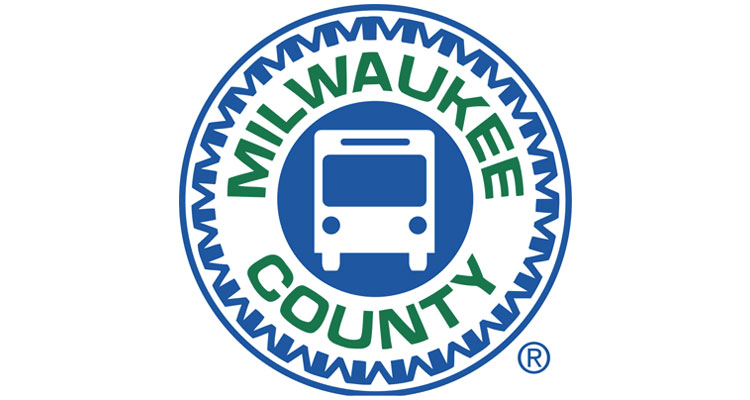In a city as relatively small as Milwaukee, certain people, places, or things can get saddled with bad reputations. Even if these reputations are somewhat deserved, Milwaukee Record strives to look past the negatives and focus on the positives. In the latest installment of In Defense Of, we make a case for the county’s oft-embattled public transit system.
The bad rap: Oh, the bus. You’ve heard it all and/or grumbled about it all before: route changes, fare increases, no more paper transfers, the occasional smell that can only be described as “bus.” Then there’s the kinda-clunky M•CARD site and the fact that any money you put on your card doesn’t show up until the next day. Oh, and that strike back in 2015. And the GO Pass mess of 2016. And now there’s a “wheel tax” to help pay for the whole thing? Ugh.
Some history: Mass transit in Milwaukee dates back to 1858, when the city began construction of a street railway system. The transit system remained a privately owned and for-profit entity until July 1, 1975, when it was acquired by Milwaukee County and put under the operation of a private, not-for-profit firm called Milwaukee Transport Services (MTS). Just under three years later, in May 1978, bus drivers went on strike for 39 days. “Isn’t it strange?” asked a Milwaukee Journal letter to the editor at the time. “Man can use his intelligence to send another man into space. But man, with all his intelligence, cannot sit down and work out solutions to get people from one side of the city to another. How we need each other! And how we need buses!” Indeed.
More recently, in 2013, Milwaukee County put its contract with MTS out to bid. A Texas company known as MV Transportation put in a bid, though a county board committee ultimately rejected the deal. During the summer of 2015, drivers went on strike again—this time for only three days—irking an entire city as well as a massive summer festival that happened to be going on at the same time. In 2016, the GO Pass program, which had provided free rides to county residents who were disabled or 65 years of age and older, proved to be a major financial loss for the county. It was soon modified with new restrictions and a $5 application fee. Speaking of fees, a $30 “wheel tax,” designed to put more cash in a dedicated transit fund, was approved for 2017. (The original fee, proposed by County Executive Chris Abele, was $60.)
The good rap: Despite all the drama, MCTS remains a robust, well-oiled machine. Some facts:
• MCTS currently operates 411 buses.
• Roughly 340 buses are used at the peak of weekday morning service. Roughly 330 are used at the peak of evening service, and 211 are used mid-day.
• Roughly 170 buses are used on Saturdays, and 140 are used on Sundays.
• MCTS serves some 5,500 bus stops and operates more than 60 routes, including Freeway Flyer service from 14 park-ride lots.
The recently revamped, mobile-friendly RideMCTS website is pretty slick, too. Featuring a customizable bus trip planner, a real-time bus tracker, and more, it’s a must-have for any and all MCTS riders. As for fares, regular adult fares are $2.25 with cash, or $1.75 with an M•CARD. Paper transfers may be a thing of the past, but even if you find yourself with no funds on your M•CARD and are forced to pay with cash, you can swipe your card for a standard 90-minute transfer.
Funding MCTS with the dreaded “wheel tax,” meanwhile, is the byproduct of the county’s tricky relationship with public transportation. Jeramey Jannene explains in a 2016 piece for Urban Milwaukee:
“Milwaukee County, and other municipalities, are severely restricted in their ability to raise funds to support transportation. Unlike cities in many other states, Wisconsin counties and municipalities cannot create an additional sales tax without a state law change. This has created the unusual setup where the Milwaukee County Transit System is heavily reliant on state aid (45 percent of the MCTS budget) with farebox revenue (29%), federal aid (16%) and the county property tax levy (10%) making up the rest. The vehicle registration fee, commonly called a ‘wheel tax,’ is one of the only fees a county can raise to generate additional revenue.”
The whole GO Pass thing may have been a mess, but MCTS’ dedication to disabled riders remains laudable. In a recent blog post on Wheelchair Travel, national travel writer John Morris sings the praises of Milwaukee’s public transit system. “Every time I boarded the bus, the driver secured my chair without my having to ask,” Morris writes. “I was treated with the utmost respect, and really enjoyed riding the city bus.”
Speaking of drivers, MCTS has some stellar ones. Abele recently gave kudos to two above-and-beyond drivers, including Jeannie Mitchell, who helped two lost children find their way to safety. Watch the video below and try not to feel better about the sometimes sorry state of humanity:
Oh, and around the time everyone started getting smartphones, MCTS ditched those horrible “Transit TV” monitors that blared away on every bus. Jesus, remember that shit? With the inane trivia and grating drek like the “Clever Cleaver Brothers”? Thank you, MCTS. Thank you. Here’s to another 159 years.

